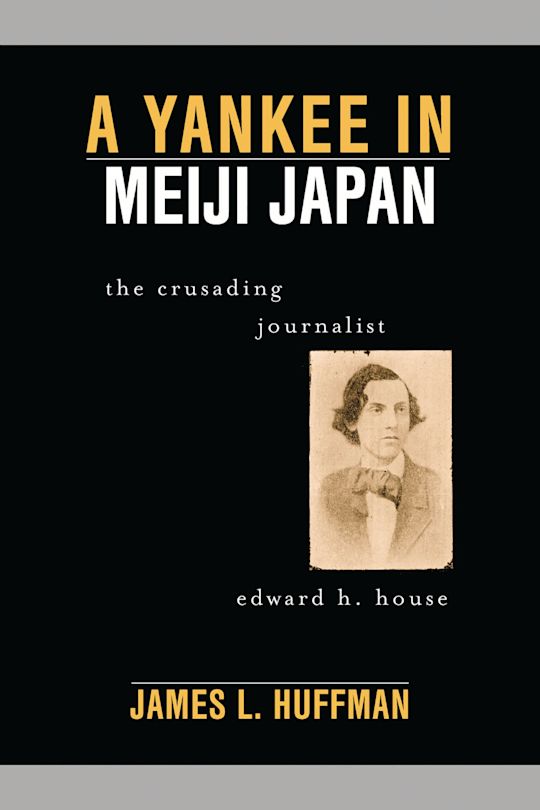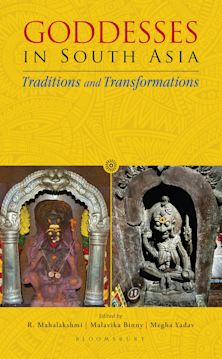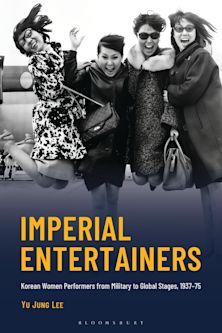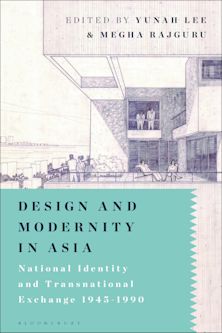- Home
- ACADEMIC
- History
- Asian History
- A Yankee in Meiji Japan
You must sign in to add this item to your wishlist. Please sign in or create an account
Description
This unique book introduces nineteenth-century Japan through the compelling life story of Boston journalist Edward H. House (1836-1901), America's first regular correspondent in Japan. House's accomplishments were breathtaking in variety: shaping the reputations of John Brown and Mark Twain, influencing American attitudes toward Asia, persuading Congress to return a massive indemnity to Japan, editing Tokyo's earliest English-language newspaper (Tokio Times), constructing a powerful case against imperialism, and introducing Western orchestral music to Japan. House's experiences also illustrated many of the era's key themes: Japan's use of public relations as a diplomatic tool, the contentious relations of the expatriate community, the role foreign advisors played in Japan's drive toward modernity, and the complicated nature of U.S.-Japan relations. The book captures the human drama of a special breed of early journalist. It recounts the bohemianism that made House and his friends (e.g., Walt Whitman, Artemus Ward) notorious. It narrates his tender, tortured relationship with Aoki Koto, a girl he adopted when she was on the verge of suicide. It shows a courageous struggle with gout, including 20 years in a wheelchair given to him by the powerful Okuma Shigenobu. And it details a deep friendship with Mark Twain, which eventually was destroyed by a dispute over The Prince and the Pauper. Twain's unpublished 50-page manuscript on the experience, Concerning the Scoundrel E. H. House, is introduced here for the first time. Meticulously researched, the book draws on House's voluminous writings and on hundreds of letters between House and major figures in both America and Japan, including Mark Twain, U.S. Grant, John Russell Young, Edmund Clarence Stedman, Okuma Shigenobu, and Inoue Kaoru. With its lively, accessible prose and seamless interweaving of the life of House with the history of the Meiji era, this book will be welcomed by students, scholars, and general readers interested in modern Japanese history and in America's nineteenth-century foreign relations.
Table of Contents
Chapter 2 2 The Prodigy: 1836-1870
Chapter 3 3 Japan to 1870: Dizzying Change
Chapter 4 4 The Newcomer: 1870-1873
Chapter 5 5 Japan, 1870-1875: Consolidating Power
Chapter 6 6 Writing for Japan: 1873-1876
Chapter 7 7 Japan, 1876-1881: Growing Pains
Chapter 8 8 The Tokio Times-"That Naughty Yankee Boy": 1877-1880
Chapter 9 9 Japan, 1881-1885: The Outsiders
Chapter 10 10 A Change in Course: 1880-1885
Chapter 11 11 Japan, 1885-1892: Imperial Constitutionalism
Chapter 12 12 Interesting Times: 1886-1892
Chapter 13 13 Japan, 1893-1901: Modernity-And All That Meant
Chapter 14 14 Evening Years: 1892-1901
Chapter 15 15 Epilogue
Product details
| Published | 21 Apr 2003 |
|---|---|
| Format | Ebook (Epub & Mobi) |
| Edition | 1st |
| Extent | 328 |
| ISBN | 9781442210073 |
| Imprint | Rowman & Littlefield Publishers |
| Publisher | Bloomsbury Publishing |
About the contributors
Reviews
-
This well-written book will not only interest specialists of Japan but will be fascinating reading for anyone interested in history. Highly recommended.
Choice Reviews
-
James Huffman's well-written biography of the American journalist Edward House is a welcome addition. . . . A detailed, factual narrative that flows smoothly, allowing the reader to follow House's life as it is set against a complicated historical background.
Persimmon
-
James Huffman's earnest and compelling, also meticulously researched, story reveals a huge amount about Western attitudes toward Japan in the Meiji era, also about Japanese methods of making itself more of a presence in the international arena. Beautifully researched and a lively read, this is a major contribution to the historiography of Japan–U.S. relations.
The Daily Yomiuri
-
A Yankee in Meiji Japan is at once an engrossing biography of a nineteenth-century American journalist and an absorbing history of Japan in the initial stages of its modern transformation. As a pioneer interpreter of Japan for the English-speaking world, E. H. House struggled against stereotypes of exoticism to represent the country he loved as progressive and civilized. Huffman offers a fascinating and innovative account of the interaction between personality, press, and politics. This is history at its best: superbly crafted, painstakingly documented, and brilliantly written.
M. William Steele, International Christian University
-
Huffman's highly readable account of E. H. House's life will appeal to a wide audience, but especially to non-specialists, and by focusing on a sympathetic observer of Japan, Huffman has found an effective vehicle for exploring a number of interesting themes in the history of the Meiji period.
Pacific Affairs
-
Huffman has provided a well-researched life of the Yankee of his title, Edward H. House.
Journal of Asian History



































